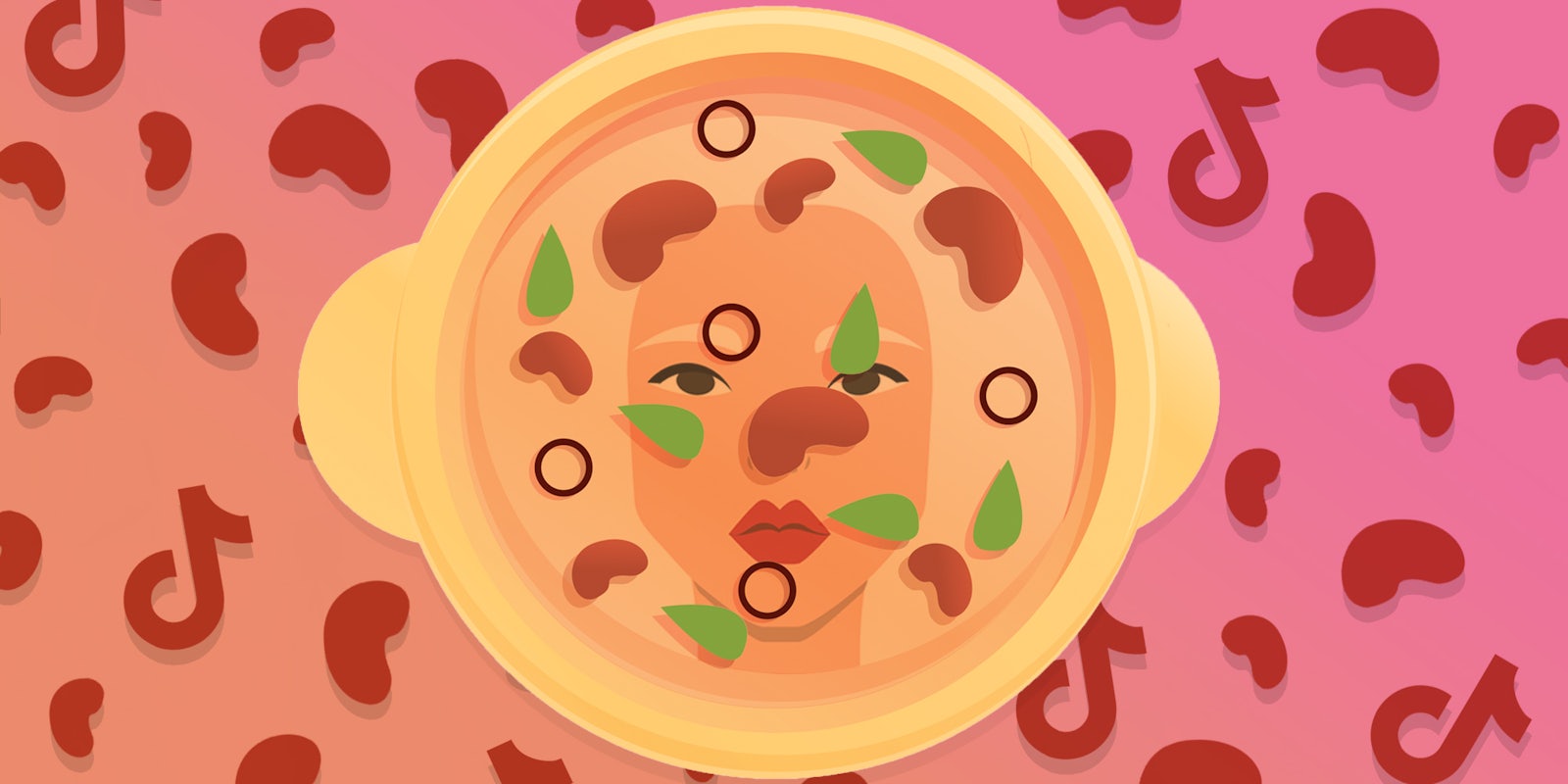After @vibinggranolamom posted a TikTok sharing a bean soup recipe last month, commenters took particular issue with the soup’s main ingredient.
“Can I substitute beans with something else?” one person asked. “Beans? That’s a deal breaker,” said another.
Another TikToker, @sarahthebookfairy, says the bean soup example perfectly illustrates the “what about me” effect. Now, in her own videos, she’s sharing the potential consequences of the self-centered phenomenon.
Since Thursday, her viral TikTok about the “what about me” effect has over 2.1 million views.
@sarahthebookfairy #beansoup #beansoupcontroversy #chronicallyonline #individualism ♬ original sound – Sarah
The ‘what about me’ effect, explained
“The ‘what about me’ effect basically combines individualistic culture with being chronically online, and it is rampant on TikTok,” Sarah says in her video.
She explains that the effect is when a video or topic “doesn’t really pertain” to someone, but they “find a way to make it about them.”
Users post a comment or “seek out certain accommodations” to make the topic about them, “instead of recognizing that maybe, they’re just not the target audience for that thing,” Sarah says.
To demonstrate, Sarah points out the comments on the bean soups recipe video. She questions why people wrote these comments “instead of just saying, ‘Hey, if I don’t like beans, maybe I shouldn’t watch this bean soup video.’”
After watching Sarah’s video, TikTok users found the viral bean soup video and wrote parodies of the “what about me” effect in the comments.
“Hey can I sub the beans with iron pills instead? or would that not taste as good?” one user wrote.
“What if i substituted the beans with little rocks because they looked similar and now all my teeth are broken?” another joked. “What can i use to substitute my teeth?”
Sarah continues in her video that she doesn’t believe these comments are because users lack common sense. Instead, she thinks the comments are because of the United States’ “rampant individualistic culture.” The phenomenon bears a resemblance to “main character syndrome.”
“We make everything about ourselves and seek out accommodations and validation for everything,” she says.
Beyond bean soup
Sarah has seen similar scenarios on other parts of TikTok, such as people commenting, “What if I’m bald?” on haircare videos, or gluten-intolerant people proclaiming they can’t eat gluten on videos of people making bread.
The “what about me” effect exists beyond TikTok, Sarah said.
“I see it on Instagram too, and twitter. I think it’s all over social media as a whole,” she told the Daily Dot over Instagram direct message.
TikTokers flocked to the comments of Sarah’s video to back up her point.
User @bluecottagebakeryla, a baking tutorial account, wrote, “I get a lot of ‘I hate cookie cakes’ comments on my videos. Of me just decorating a cookie cake [shrug emoji].”
“I swear the bean soup fiasco should be in future sociology textbooks..like it sums up gen z culture so well,” one user wrote.
But Sarah insists that the “what about me” effect doesn’t just apply to one generation.
In a follow-up TikTok posted on Monday, Sarah responds to a comment that read, “I feel like a lot of people who do this are young millennials and older gen z.”
@sarahthebookfairy Replying to @Autumn #ego #egoicmind #egovshigherself ♬ original sound – Sarah
“What I’m talking about in this other video is not specific to any one type of person,” Sarah says. “It’s a waste of energy to try and find someone to place the blame on.”
Impact of the ‘what about me’ effect
Sarah, a self-proclaimed leftist, is clear that the “what about me” effect is different from actual instances of advocating for equity and inclusion. She believes that the phenomenon makes a “mockery” of people who call out others for being discriminatory.
“It’s more than annoying comments on TikTok,” Sarah told the Daily Dot. “The ripple effect of those comments is that it prevents marginalized groups with important points to make from being heard.”
Other TikTokers have also noticed this trend. User @michelleskidelsky noticed the similar “whataboutism” phenomenon that she explained in an April 20 video.
@michelleskidelsky if it doesnt apply let it fly
♬ original sound – michelle
Michelle says that in one of her videos about deinfluencing, she said people did not need to buy “every color bra that Lululemon sells.” People in the comments reacted negatively, asking, “What about professional dancers?”
Michelle, growing frustrated, said she needs “15 disclaimers” on any topic she discusses. “Maybe this video isn’t for them!” she said.



